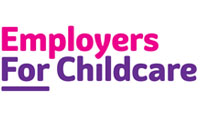Employers For Childcare provides childcare briefing to the Education Committee
On Wednesday 28 February, Marie Marin, Chief Executive and Aoife Hamilton, Consultant, Employers For Childcare provided an oral briefing to the Education Committee at the Northern Ireland Assembly. Since the restoration of devolution earlier this month, childcare has been identified as one of the key priorities for the new Northern Ireland Executive with Ministers and MLAs from all parties having outlined their commitment to investing in this critical sector, to support families and childcare providers.
As the leading organisation which has been campaigning for the past 20 years for better support with childcare to enable parents to work, and highlighting that childcare needs to be recognised both as a key economic and labour market issue and for its role in helping to give children and young people the best start in life, we were pleased to be one of the very first organisations to be invited to brief the Committee.
In providing this important briefing to the Committee Marie and Aoife drew on the Northern Ireland Childcare Survey research which we have carried out since 2010, making it the longest running, most robust and most comprehensive study into the experiences of parents and childcare providers. Since 2010 we’ve engaged more than 50,000 parents and childcare providers in our research, giving us the evidence, built up over the past 14 years, of the ways in which parents and childcare providers are being impacted by the lack of investment in childcare. They also drew on other research – national and international and their own combined 30+ years of experience in this sector.
In her opening remarks, Marie reflected on a photo from our archives – from 2003 – where she was pictured at Stormont with Eileen Bell of the Alliance Party, at an event on ‘lifting the childcare barrier’. 20+ years later and the situation has only worsened both for families and the childcare sector.
Marie reflected how early learning and childcare in Northern Ireland in 2024 can be characterised as:
- Unaffordable – for parents to access and for providers to deliver
- Facing a workforce crisis
- Unavailable or inaccessible for many
- Quality is at risk
- Not sufficiently integrated or family-centred.
Looking ahead, she recognised that we now have a generationally significant opportunity to design and invest in a world leading early learning and childcare system, building on our strengths while learning from experiences elsewhere, to truly deliver for everyone.
Funding model
Following Marie’s introduction, Aoife Hamilton reminded MLAs of the Department of Education’s vision “every child and young person is happy, learning and succeeding” and set this out as the starting point for our early learning and childcare proposals which are aimed at:
- Ensuring every child (no matter what their parental circumstances) can benefit from quality early learning and childcare, helping to give them the best start in life.
- Supporting parents to get into, stay in and progress in work – and that includes education and training. This is key to reducing poverty – a key factor behind educational underachievement.
She outlined the need for ‘transformational change’ in how the early learning and childcare infrastructure in Northern Ireland is supported and invested in, and set out details of Employers For Childcare’s proposed funding model which includes four pillars of financial support:
- 22.5 hours of universal, standardised fully funded pre-school education – already being scoped by the Department of Education
- Universally subsidised early learning and childcare
- Targeted support to tackle disadvantage – including strengthening Sure Start and investing in programmes Pathway, Bright Start and Toy Box.
- UK-wide financial support schemes for working parents.
She went on to set out the details of Employers For Childcare’s proposals for an affordability scheme which would provide a core-funding subsidy for registered childcare providers to cover a portion of their overall costs, enabling them to reduce the fees they charge parents for all provision outside of pre-school funded hours. This would rebalance the way in which early learning and childcare is funded. Through this scheme:
- The government would pay a subsidy to each early learning and childcare provider on the basis of how many places they are registered for
- In return for the guaranteed subsidy, the provider must:
- reduce and cap parental fees, in line with an agreed fee structure
- uplift staff salaries, terms and conditions in line with a workforce strategy for the sector
- deliver high quality provision, meeting agreed standards in relation to outcomes for children
- maintain high levels of financial probity, governance and information transparency.
Through this bespoke scheme, investment in early learning and childcare can achieve its potential in helping to give children the best start in life, supporting parents to work and tackling disadvantage. More details of the proposals are set out in the Tackling disadvantage through Childcare briefing, developed in partnership with the Joseph Rowntree Foundation, and published in January 2024. Referring to Northern Ireland’s high level of economic inactivity, Aoife referenced the potential of investment in childcare to support women in particular to return to work following parental leave – a point that was picked up but BBC News NI’s business correspondence, Clodagh Rice.
Bespoke solution needed for Northern Ireland
Aoife warned of the dangers of simply replicating the 30 hours free childcare scheme which is available in England. She set out many of the issues with the funding and implementation of the scheme and stressed the importance of learning from these to deliver a bespoke solution for Northern Ireland that meets the needs of both families and childcare providers. Read more detail on the issues with the 30 hours free childcare scheme in our article here.
Immediate support also required
Before concluding the briefing Aoife recognised that design of a financial support scheme won’t happen overnight and will require progress on the overall Early Learning and Childcare Strategy, which is currently in development. However, she called again for immediate action, in light of the incoming increase to the National Minimum and Living Wage from 1 April, which will increase costs for many providers.
While it is right that the experienced, dedicated professionals working across the sector are valued with good pay, terms and conditions we know that, in the absence of Government investment, rising staff costs will result in many childcare providers having to increase their fees. This is already having a devastating impact on families who were already struggling to afford the childcare they need. She used the example of one provider who anticipated an increase in their salary costs of £66,000 as a result of the wage uplift.
She set out a number of possible interventions:
- Stability funding for the sector: provide stability funding for the sector, similar to the sustainability funding recognised as essential during the Covid-19 pandemic. This was designed to assist the short-term viability of childcare providers and help ensure they remain sustainable. A similar scheme could be rolled out quickly to the sector, conditional on providers not increasing fees for parents or, if they have already done so, returning them to their previous rate. This would be a short-term measure designed to prevent setting closures and fee increases until an affordability scheme is rolled out.
- Remove childcare settings from the requirement to pay rates: unlike schools, private nurseries are required to pay business rates. In Wales and Scotland, all childcare providers are exempt from paying business rates.
- Expedite the review of the Minimum Standards: encourage the Department of Health to progress its review of the Minimum Standards as a matter of urgency and to take steps to remove current barriers to recruitment into the childcare sector.
- Advocate for an increase in support available through Tax-Free Childcare: advocate for cross-party support calling on the UK Chancellor to remove the current cap on Tax-Free Childcare, and increase the allowance, for families in Northern Ireland.
Conclusion
Alongside interim support for the sector and for families as a matter of urgency, Aoife set out three questions for the Committee to put to officials from the Department of Education when they joined the session:
- What is the timeline for the new Early Learning and Childcare Strategy?
- Where are the costed options that have been in development for so long?
- How will the sector, families and other stakeholders continue to be engaged?
Marie concluded the briefing by again welcoming the focus on childcare that has been shown by the new Executive, and by the Committee and again set out our two key priorities:
- Short-term: Urgent financial support to offset impending childcare fee increases as a result of the increase to the National Minimum Wage from April.
- Long-term: An ambitious Early Learning and Childcare Strategy, incorporating a fully funded affordability scheme, that delivers transformational investment in quality, accessible and affordable early learning and childcare. We need to see a timeline for this as a matter of urgency.
Questions and discussion
Following the briefing, Committee Chair Nick Mathison, MLA opened the session for questions. Members raised informed and constructive points on areas including:
- The level of short-term funding required to meet the immediate challenges and how this could include provision and support for parents of children with SEN (Nick Mathison, MLA)
- How the proposed funding model would work and the important role of early learning and childcare as an anti-poverty mechanism (Kate Nicholl, MLA)
- Comparison between the 30 hours free childcare model and the proposed funding model in terms of its economic impact; Implications of any delays in progressing the Early Learning and Childcare Strategy quickly; What interventions proposed could be delivered quickly and have the most impact? (Cathy Mason, MLA)
- Engagement with the Department of Education about a campaign to promote the work of Employers For Childcare’s Family Benefits Advice Service in ensuring all parents are aware of the support currently available with childcare costs; Work ongoing with employers to provide childcare support locally through workplace childcare (Cara Hunter, MLA)
- Recognition of the critical role of childcare providers in terms of their value and support to families and local communities (Danny Baker, MLA)
- The significant return on investment associated with investment in childcare (Robbie Butler, MLA)
- How registered childminders, a critical part of our early education and childcare sector, can be better supported; The importance of flexible, family friendly work policies (Cheryl Brownlee, DUP).
The Committee then heard from officials from the Department of Education who attended to provide an update on the Departmental Budget and their work in relation to a new Early Learning and Childcare Strategy and interim support. We will share a separate article providing an overview of their evidence.
For more information
Download Employers For Childcare’s briefing to the Education Committee at the top of this page, or you can watch the session back here.






